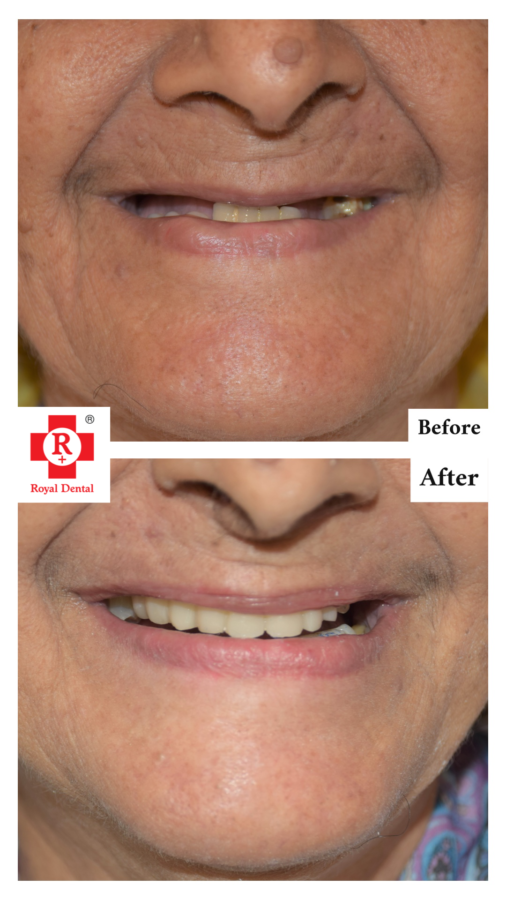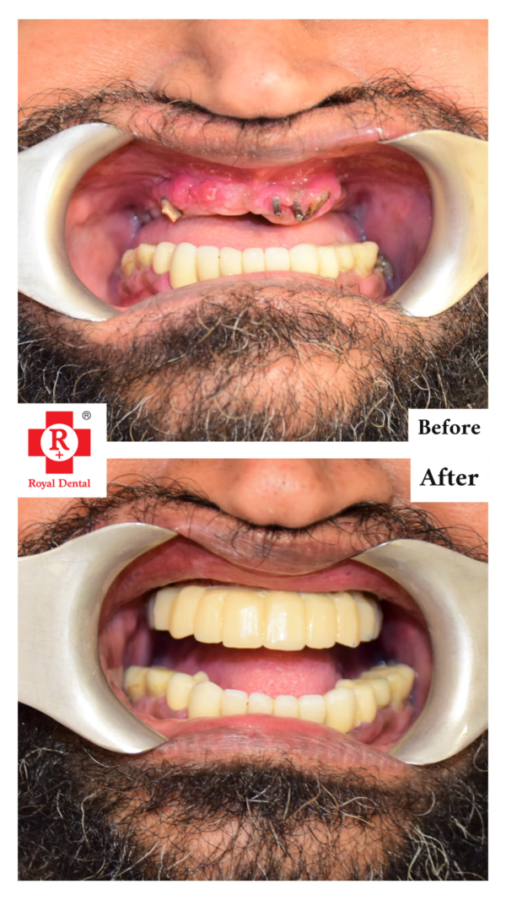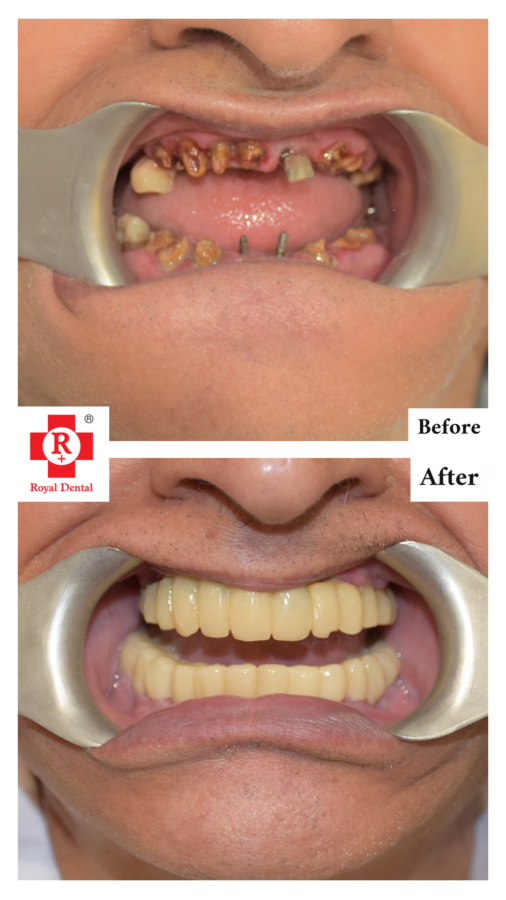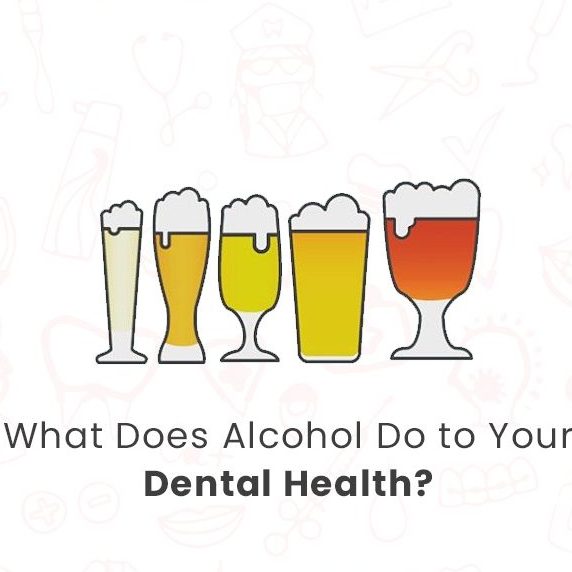Dental implants are made of titanium and act as artificial tooth roots that provide a solid foundation for dental restorations. However, there are certain risks associated with dental implants, especially when it comes to alcohol consumption. In this article, we’ll explore the relationship between dental implants and alcohol, and discuss some of the ways in which drinking can affect your oral health. Whether you’re a social drinker or a heavy alcohol consumer, it’s important to understand the potential risks to your oral health. So that you can make informed decisions about your dental care. So grab a glass of water, and let’s dive in to know about alcohol after dental implant.
Alcohol after Dental Implant affects Oral Health
Dry Mouth: Drinking alcohol can cause dehydration, which can lead to a dry mouth. A dry mouth is a breeding ground for bacteria, as the saliva is responsible for washing away bacteria and food particles from the mouth. This can increase the risk of tooth decay and gum disease.
Tooth Decay: Alcohol is high in sugar and acidity, which can lead to erosion of tooth enamel, leaving teeth susceptible to decay. Alcoholic beverages can also stain teeth, causing them to appear discolored.
Gum Disease: Drinking alcohol can cause inflammation of the gums, which can lead to gum disease. Gum disease can cause tooth loss and damage to the bone and connective tissues that hold teeth in place.
Oral Cancer: Chronic heavy drinking is a known risk factor for oral cancer, which can occur in the lips, tongue, gums, and throat. Alcohol can damage the cells in the mouth, leading to the development of cancerous cells.
Impact of Alcohol after Dental Implant on success
Studies have shown that alcohol consumption, especially in excess, can impair the body’s ability to heal and regenerate tissue. When a dental implant is placed in the jawbone, the surrounding tissue must fuse with the implant to secure it in place. This process is called osseointegration, and it is crucial for the long-term success of the implant.
The impact of alcohol consumption on the success of dental implants can be a topic of concern for individuals who have undergone or are planning to undergo dental implant surgery. While it is important to follow the specific instructions and advice provided by your dentist or oral surgeon, here is some general information regarding the potential effects of alcohol after dental implant placement.
Delayed Healing: Alcohol consumption, especially in excessive amounts, can impair the body’s natural healing process. This can potentially delay the healing of the surgical site and the integration of the dental implant with the jawbone.



It is essential to consult with your dentist or oral surgeon regarding the specific recommendations and guidelines for alcohol consumption after dental implant surgery. They will provide personalized advice based on your individual circumstances, ensuring the best chances for successful implant integration and long-term dental health.
Increased Risk of Infection: Alcohol can weaken the immune system, making individuals more susceptible to infections. After dental implant surgery, it is crucial to maintain proper oral hygiene and minimise the risk of infection.
Interference with Medications: Following dental implant surgery, your dentist or oral surgeon may prescribe medications, such as antibiotics or pain relievers, to aid in the healing process and manage any discomfort.
Oral Health Complications: Alcohol consumption, particularly if it involves high sugar content or acidic mixers, can contribute to dental issues such as tooth decay, gum disease, and dry mouth. These conditions can indirectly affect the long-term success of dental implants by compromising overall oral health.
Alcohol and healing after Dental Implant
When a dental implant is placed in the jawbone, it undergoes a process called osseointegration, where the implant fuses with the surrounding bone tissue to create a stable foundation for a replacement tooth. This process can take several months, and it is crucial for the long-term success of the implant.
Excessive alcohol consumption can impair the body’s ability to heal and regenerate tissue, and can lead to slower healing and an increased risk of infection. Alcohol also has a dehydrating effect, which can lead to dry mouth and a decrease in saliva production, which is important for maintaining good oral health and preventing infection.
It is recommended that patients who undergo dental implant surgery avoid alcohol consumption for at least 48 hours after the procedure, as alcohol can interfere with the blood clotting process and increase bleeding. Patients should also avoid alcohol during the healing period, which can range from several weeks to several months, depending on the individual case.
Oral Hygiene Tips: Alcohol after Dental Implant
Dr. Chirag Chamria recommends the following oral hygiene tips for individuals who consume alcohol:
Limit alcohol consumption: It is important to limit alcohol consumption to moderate levels to avoid its negative effects on oral health. Excessive alcohol consumption can lead to dry mouth, tooth decay, and gum disease.
Brush and floss regularly: Brushing twice a day and flossing daily can help remove food particles and bacteria from the mouth. It is essential to brush for at least two minutes and to use a fluoride toothpaste.
Use mouthwash: Mouthwash can help kill bacteria and freshen breath. Choose an alcohol-free mouthwash to avoid further drying out the mouth.
Drink plenty of water: Drinking water can help keep the mouth hydrated and prevent dry mouth. It can also help rinse away food particles and bacteria from the mouth.
Visit the dentist regularly: Regular dental check-ups can help detect oral health problems early on and prevent them from worsening. Dental cleanings can also remove plaque and tartar buildup, which can lead to tooth decay and gum disease.
Following these tips can help individuals who consume alcohol maintain good oral hygiene and prevent oral health problems. It is important to remember that maintaining a healthy lifestyle, including a balanced diet and regular exercise, can also have a positive impact on oral health.
Recommended limits on alcohol after Dental Implant
If you’re considering dental implants, it’s important to understand the recommended limits on alcohol consumption to minimize the risk of complications. The National Institute on Alcohol Abuse and Alcoholism recommends that men drink no more than 14 drinks per week, and no more than 4 drinks per day. For women, the recommended limit is no more than 7 drinks per week, and no more than 3 drinks per day.
It’s also important to avoid binge drinking, which is defined as consuming more than four drinks for women and five drinks for men in a single session. Binge drinking can increase the risk of complications during and after implant surgery, as well as increase the risk of developing oral health problems.
Conclusion
Surgical placement of dental implants is a difficult process that calls for meticulous preparation. Patients should be made aware of the potential dangers of alcohol intake so that they may take preventative measures. Dental implant success and long-term oral health may be ensured by patients who follow these guidelines and who work closely with their dental care team at Royal Dental Clinics.






